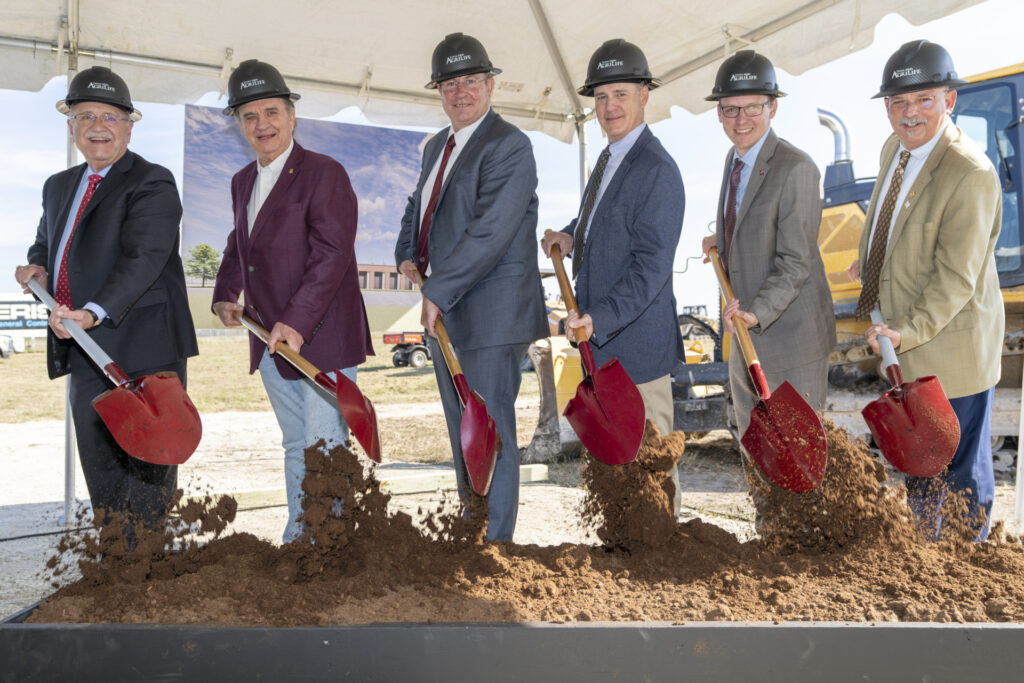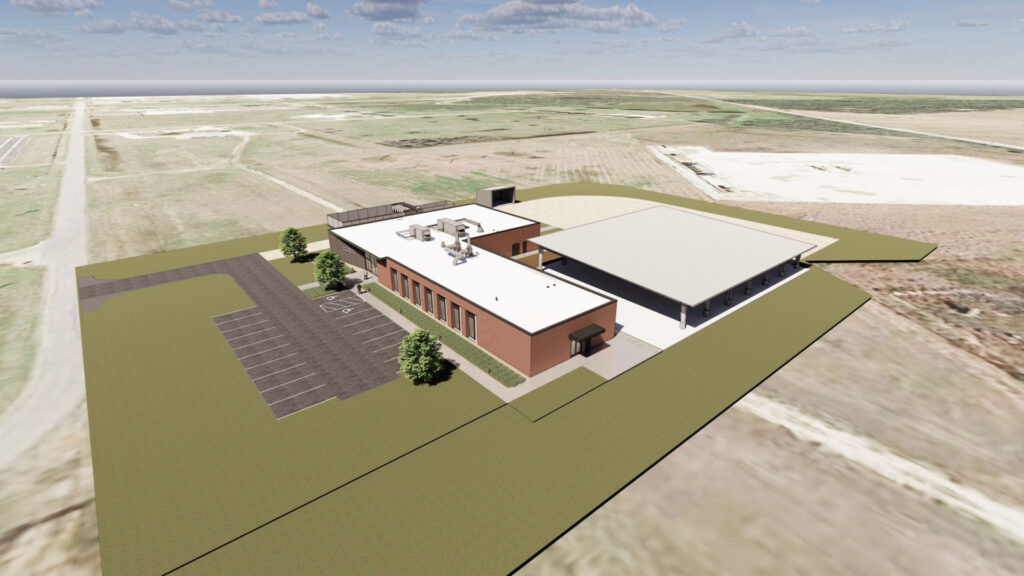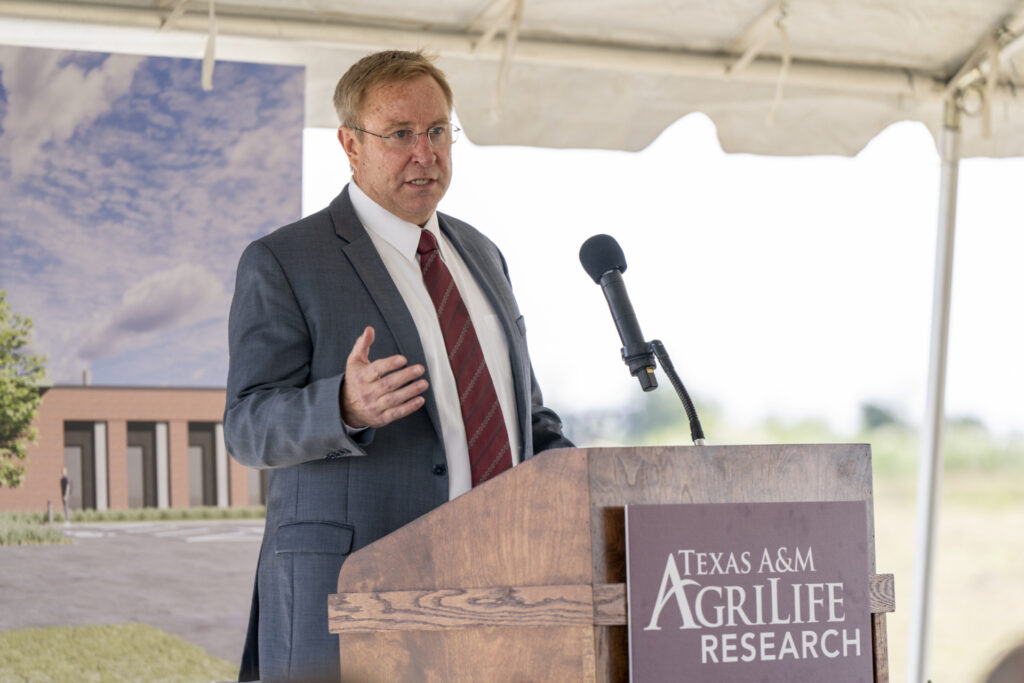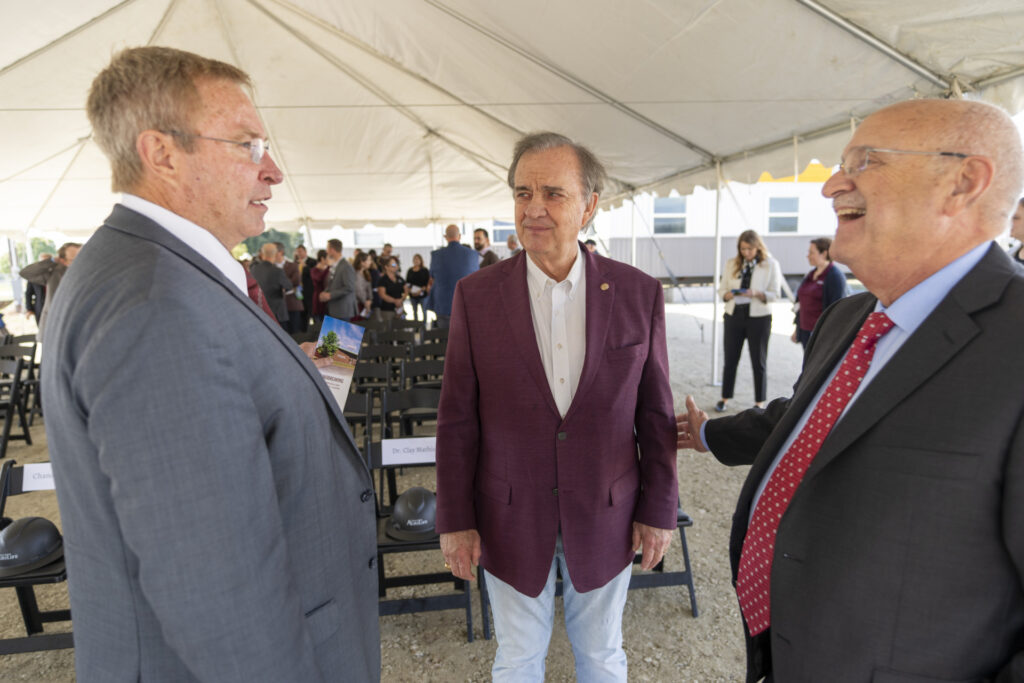Texas A&M begins construction on Animal Reproductive Biotechnology Center
New facility to help Texas A&M lead global livestock production through research, teaching, outreach
Texas A&M AgriLife Research hosted leaders from across The Texas A&M University System in a groundbreaking ceremony of the new Animal Reproductive Biotechnology Center at Texas A&M-RELLIS, a 2,400-acre applied research campus in Bryan.
The $13 million facility is a joint construction project of AgriLife Research and the Texas A&M College of Agriculture and Life Sciences Department of Animal Science, with completion expected in 2025.
The center will be integral to new opportunities for advancing collaborative research, teaching and outreach in the department while supporting an overarching vision of leading the science around animal pregnancy and development.

“The beginning of this construction is another step in carrying out the land-grant mission across The Texas A&M University System,” said Chancellor John Sharp. “This technologically advanced facility will keep Texas A&M at the forefront in advancements in animal expertise and propel innovative, science-based solutions that lead the industry in overcoming challenges.”
“Innovations in livestock reproduction are crucial to agriculture in Texas, and this building will be an important part of the big ‘ecosystem’ of agriculture and life sciences at Texas A&M,” said Jeffrey W. Savell, Ph.D., vice chancellor and dean for Agriculture and Life Sciences. “This new facility will move research forward and will help train producers and students to carry on this work into the future.”
Anticipated impacts on livestock reproduction
The new center will be fundamental to increased understanding of ruminant reproduction at molecular, cellular and whole-animal levels while continuing work to address known reproductive issues. It will serve to advance innovation and collaboration through industry-partnered research focusing on the latest techniques and technologies that optimize reproductive efficiency and minimize economic loss for producers.

G. Cliff Lamb, Ph.D., director of AgriLife Research, said the new center dovetails with a string of advancements across the state research agency that contributed to a near doubling of competitive awards in fiscal year 2023. He also cited the establishment of several interdisciplinary initiatives to solve overarching challenges facing Texas commodities.
“This facility will be a major boost to translational research for sustainable livestock systems,” Lamb said. “It is critically important that we generate science our partners can trust and apply, and which nourish healthy lives, livelihoods and economies.”
A technologically advanced campus
The center will house labs, educational spaces, office space, and animal holding and handling areas separated by size and ruminant type. Designated areas for each group will include chutes for specimen collection, stanchion space for hands-on instruction, and preparation and recovery spaces for small ruminants. These workspaces will be supported by load-out areas, holding pens and alleyway circulation.

“It is exciting to envision what we can discover, and the lives we will improve, as a result of the work at this new facility,” said Clay Mathis, Ph.D., head of the Department of Animal Science. “This facility will further empower our exceptional team of experts to make new discoveries and open up new experiences for students.”
“It’s an exciting day to be an Aggie, a faculty member and a student at Texas A&M,” said Ky Pohler, Ph.D., associate professor in the Department of Animal Science. “This one-of-a-kind space brings together the latest reproductive technologies under one roof to support research and hands-on teaching. There is no other space like this that exists in the U.S.”
Giving to the Animal Reproductive Biotechnology Center
Gifts from industry members have helped transition the center from an idea to reality.

The Texas A&M Foundation is a nonprofit organization that exists to the benefit of Texas A&M University. The Foundation works with former students, corporations and other Texas A&M supporters to match their charitable interests with the university’s priorities. Gifts create scholarships, advance faculty endeavors, enhance student programs and fund new buildings, ultimately creating a brighter future for Texas A&M, one relationship at a time.
To donate to the new Animal Reproductive Biotechnology Center, go to [giving link closed] or contact Jansen Merrill, director of development, at 979-845-7594.





